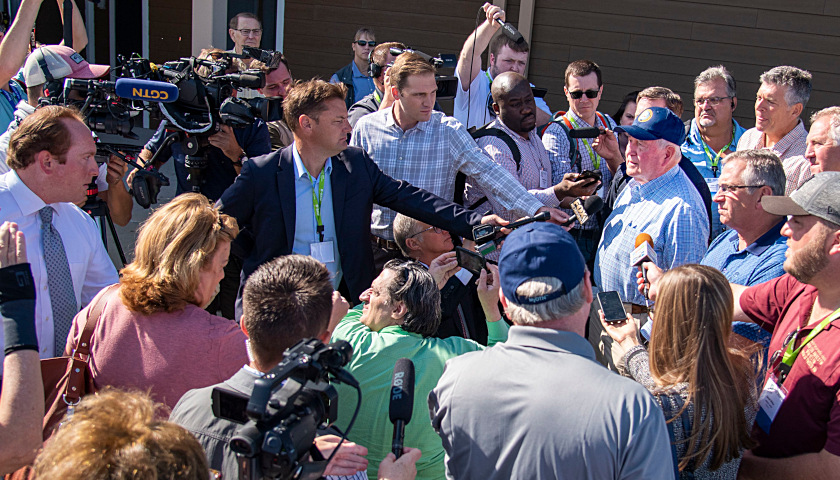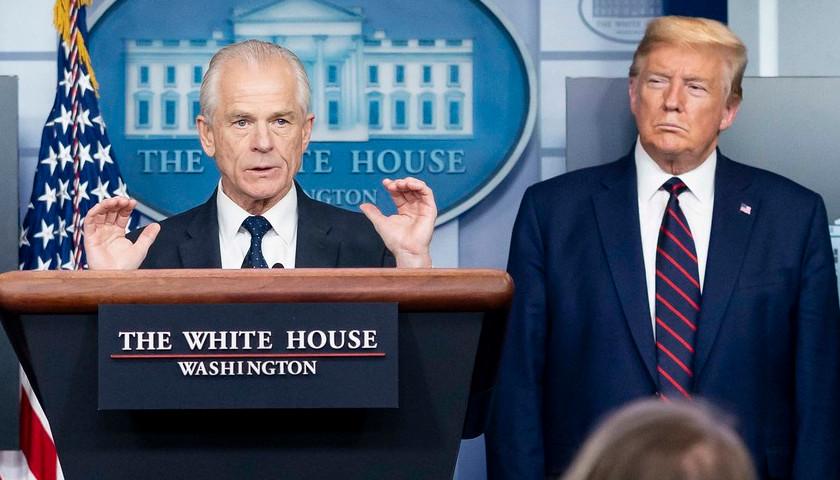by Kane Farabaugh
DECATUR, Illinois – Continuous wet weather disrupted the spring planting season for Southern Illinois farmer Jim Raben, meaning he is anticipating a lean harvest this year.
“For our area and probably for our farm, probably 20, 25% prevent plant,” he told VOA at the 2019 Farm Progress Show in Decatur, Illinois. “Then there were also failed acres later on that were under water or whatever reason, that’s another 10%.”
Raben admits the weather is one of the great variables that no one can control. But human actions are playing a big role in other factors making life more difficult for American farmers, including a trade war with China and delays in the approval of a new trade agreement with the country’s northern and southern neighbors.
“I knew there was going to be adjustments,” Raben said of President Donald Trump’s escalating exchange of tariffs with China. “But I think I personally, I would not have moved into it that quickly, and wouldn’t have had so many different entities of trade problems. I would have done them one at a time and work through it.”
Trade debate
 While the biennial Farm Progress Show in Illinois is an opportunity for farmers like Raben to learn about the latest trends in the agriculture industry, it’s also an opportunity to raise their voices in the national debate over international trade.
While the biennial Farm Progress Show in Illinois is an opportunity for farmers like Raben to learn about the latest trends in the agriculture industry, it’s also an opportunity to raise their voices in the national debate over international trade.
“It’s important for farmers in Illinois to understand how important the export markets are to their profitability. We export more corn out of this state than any other state does,” explained Tricia Braid with the Illinois Corn Growers Association, whose exhibit at this year’s show stressed the importance of a pending trade agreement among the United States, Mexico and Canada (USMCA).
“In the decade that I’ve been working with the corn growers, this is the first time this action at the Farm Progress Show has focused on trade,” she said.
“We have a call-to-action campaign, and we are using a phone-based system” to help farmers get their message directly to the country’s lawmakers. “When they sign up then, they will be able to be directly contacted to their members of Congress and their senators to ask them to ratify the USMCA as soon as they come back from the August recess.”
Last year, after many months of negotiation, the United States reached an agreement with Mexico and Canada — its two biggest trading partners — to replace the 1994 North American Free Trade Agreement, or NAFTA.
The Trump administration argues that USMCA is “more balanced and reciprocal” than its predecessor, but Congress has been slow to ratify the agreement, frustrating U.S. farmers looking for guaranteed markets and some price stabilization for their crops.
“Some of the frustration is anchored in the fact that it’s very political in nature right now,” Braid said.
“I believe today if it was put before the floor of the House [of Representatives], it would get a majority of both caucuses, it’s a great agreement and very much needed for the U.S,” said Secretary of Agriculture Sonny Perdue, speaking with reporters during a visit to the Farm Progress Show.
 “It is a good agreement. There doesn’t need to be major tweaking. Congress has to ratify this … but it is the speaker of the House that has to introduce that.”
“It is a good agreement. There doesn’t need to be major tweaking. Congress has to ratify this … but it is the speaker of the House that has to introduce that.”
House Speaker Nancy Pelosi has said members of her Democratic Party caucus favor the deal in principle but want to see changes in certain areas, including labor rights and environmental protections, before bringing it to a vote. Analysts say passage will become even more difficult as next year’s presidential and congressional elections draw closer.
Uncertainty over the pact is adding to the uncertainty farmers face in a season many say is already filled with too much of it.
“To me, it’s a no-brainer,” said Raben, who blames Congress, not the Trump administration, for the lack of an agreement, and says other buyers such as China are looking at the USMCA as an example of U.S. trade reliability.
“It should have already been passed. If it wasn’t for politics, it would have been passed.”
Neither the USMCA impasse nor Trump’s trade war with China, which has cut deeply into agricultural exports, has diminished Raben’s support for the Trump administration’s long-term goals, and a Farm Futures summer survey shows he isn’t alone. Despite the current hardships, 67 percent of the farmers surveyed said they will vote to re-elect President Trump next year.
“I think he’s doing what is right,” Raben said. “I don’t have the answer on how to get it done quicker.”
– – –
Kane Farabaugh is a reporter at VOA News.
;





